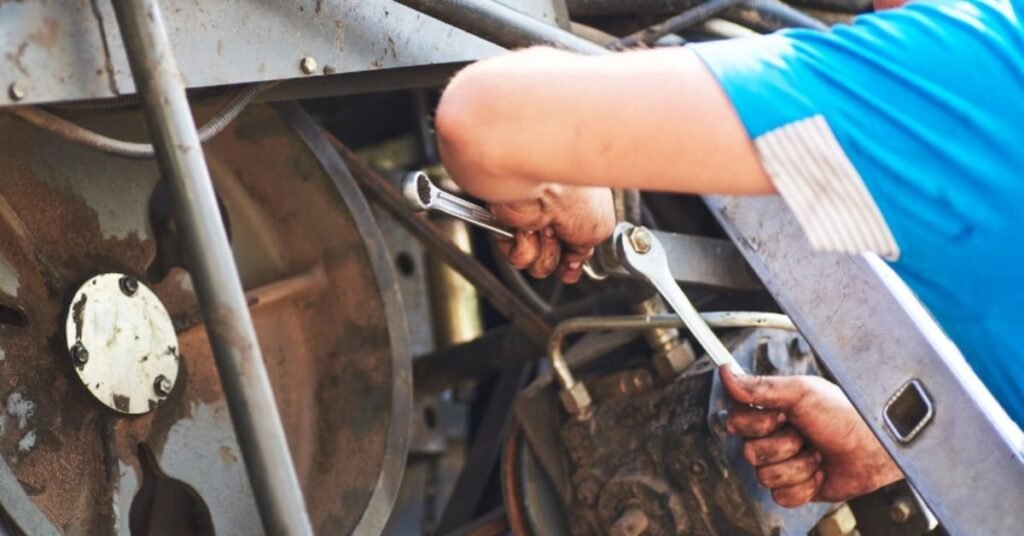Understanding Hydraulic Mobile Hose Systems
Hydraulic mobile hose systems are integral in industrial machinery, forming the lifeline that transfers high-pressure fluids to power heavy machinery. These systems, vital in the construction, agriculture, and manufacturing sectors, are engineered to handle harsh environmental conditions. Yet, when they malfunction, the resulting machine downtime can have a devastating financial impact. Whether handling hydraulic mobile hose repair Charlotte, NC, or dealing with systems in any other city, a comprehensive grasp of these systems is vital for avoiding expensive disruptions in business activities. Regular maintenance and inspection are essential in preventing breakdowns and extending the life of hydraulic hoses. Additionally, understanding the specific needs of each system ensures that the right materials and repairs are used for optimal performance. Implementing proactive solutions can significantly reduce the risk of system failure and enhance overall operational efficiency.
Identifying Common Hose Problems
Hydraulic hoses inherently face various stress factors that can lead to failure if not promptly addressed. Frequent issues include abrasion when hoses come into contact with other surfaces, resulting in external deterioration. Substandard installation techniques or inadequate protective measures often lead to this issue. Another critical issue is temperature-induced damage. Hydraulic systems typically operate in extreme temperatures; therefore, hoses require materials that can withstand such fluctuations without degrading. Fluid compatibility is another potential issue, as certain fluids can cause internal corrosion if they are incompatible with the hose materials. According to a recent article in Processing Magazine by Motion Industries, pressure fluctuations are particularly harmful as they place undue stress on the hose material, leading to fatigue and eventual failure. Early detection and resolution of these problems are crucial for maintaining optimal performance.
The Importance of Regular Inspections
Inspections serve as the foundation of a successful maintenance plan. Consistent and detailed inspections enable operators to identify potential problems before they escalate into more significant issues.
This proactive strategy protects the equipment and improves operational efficiency by reducing downtime. A well-structured inspection routine should include extensive leak checks, an assessment of fittings, and a careful examination of hoses for any visible damage. In addition to visual inspections, routine pressure tests can help ensure the hoses maintain their integrity under operational conditions. Such practices provide extensive benefits, peace of mind, and substantial cost savings.
Ensuring Proper Hydraulic Hose Installation
Inaccuracies during installation are a frequent cause of early hydraulic hose failure. Hoses should never be twisted during installation, as this can induce hidden stress points that weaken the hose’s structural integrity. It’s essential to follow manufacturer guidelines meticulously, use specified tools, and understand the proper torque setting for fittings. Proper routing during installation, ensuring that hoses aren’t forced into tight bends beyond their design parameters, and leaving room for movement due to pressure fluctuations can significantly improve performance and prevent premature failures.
Choosing Quality Hose Materials
The choice of hose material is paramount when designing reliable hydraulic systems. Different applications require materials that can withstand specific stresses, such as high temperatures, abrasive environments, or exposure to particular chemicals and oils. Premium quality materials offer durability and maintain performance standards under varied operational conditions. While the initial investment might be higher for such high-performance hoses, the reduced need for frequent repairs and their longevity justify the costs. This investment ensures the system’s reliability and facilitates efficient, uninterrupted industrial operations.
Preventive Maintenance Best Practices
Preventive maintenance is an anticipatory approach that helps lower long-term maintenance expenses while ensuring dependable system operation. Regular cleaning and proper storage are fundamental practices. Hoses should be stored in a cool, dry area to prevent material deterioration due to environmental exposure.
Keeping them adequately coiled when not in use can prevent kinking and extend the lifespan of the hoses. Preventive measures, including scheduled replacements of parts approaching their lifecycle limits, can further mitigate the risk of sudden failures.
Training Staff on Proper Handling
Human elements play a significant role in the maintenance and upkeep of hydraulic systems. Ensuring that staff are adequately trained in proper handling and maintenance procedures can mitigate the risk of avoidable errors that may lead to costly repairs. Training programs should cover the basics of hose installation, maintenance techniques, and early detection of wear and tear. When personnel understand the consequences of improper handling and are aware of best practices, the potential for human error diminishes significantly, and the longevity of their systems can be optimized.
Utilizing Modern Technology for Monitoring
With the progression of technology, the capability to observe hydraulic systems also improves precision and effectiveness. Modern diagnostic tools and software, such as those discussed on Power Motion Tech, can offer real-time monitoring and predictive maintenance insights that are invaluable for maintaining system integrity. These tools can automatically detect anomalies, sending alerts when conditions deviate from expected norms, allowing for timely interventions. Hydraulic monitoring technologies will enable us to proactively tackle potential issues before they escalate into significant problems, enhancing uptime and efficiency.
This is impressively precise, as hydraulic systems continue to evolve with new technological advancements that enhance efficiency and reduce the likelihood of system malfunctions.
Conclusion
In conclusion, hydraulic mobile hose systems are crucial in various industries, and maintaining their integrity is essential for efficient operation. Understanding common problems and implementing strategic maintenance plans can significantly enhance system reliability. Adopting preventive measures and utilizing technology for real-time monitoring enables industries to tackle issues proactively. By ensuring proper installation procedures and selecting high-quality materials, businesses can expect improved performance and more extended system longevity. Ultimately, these strategies heighten productivity and offer substantial savings in operational and repair costs.






